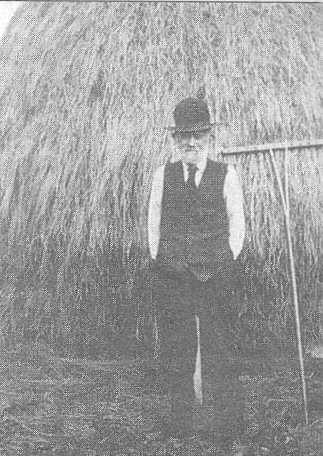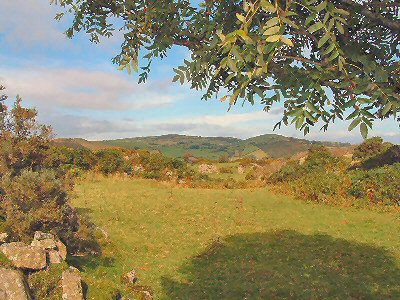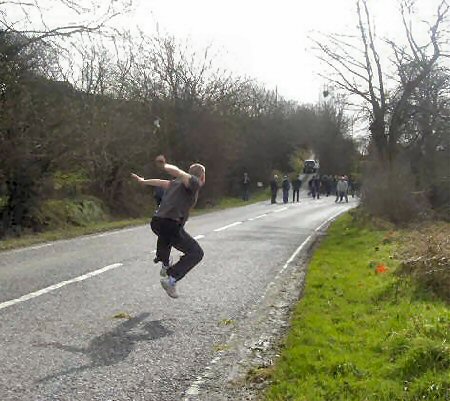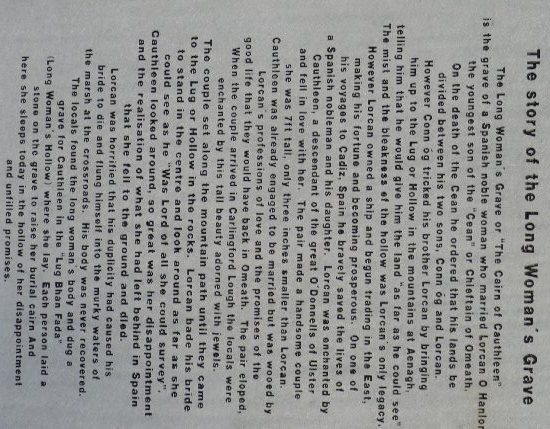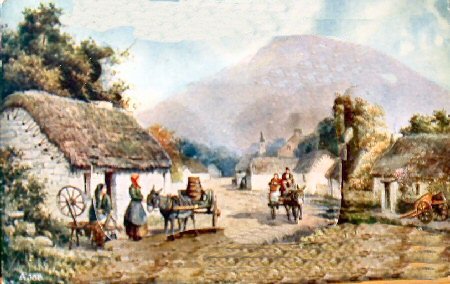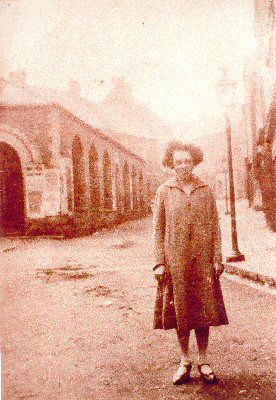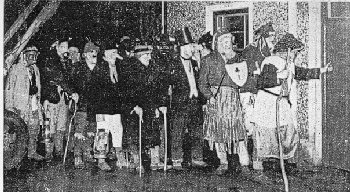There was a man once set out to market with a few bags of corn. It was the early hours when the sun hadn’t riz yit and the dew clung to his eyelashes like cold rain. As he came to the graveyard he saw two cats sitting facing each other on the wall.
‘That’s a damp breed o’ a mornin”, says one cat, stiffening the man with fear.
”Tis,’ he muttered trippingly.
‘Where are ye for?’ asked the other cat.
‘The town’, the man answered, stupefied and gawking at them both.
‘Well, turn back and tell your wife that Craw Luk is dead.’
Glad to escape from such unearthly cats the man turned his horse and galloped home. His wife saw him coming so fast and ran out in dread. He couldn’t answer her rush of questions. He slumped into a chair in the room.
‘A.. a… drink.. of water’, he begged.
When he had drank he told her, in stumbled words, of the two cats, while his own black cat sat on the hob winking at the burning turf and gazing now and then at the man in drowsy glances.
‘An’ one cat told me to tell you… that Craw Luk is dead!’
‘Craw Luk! Craw Luk!’ screeched his own cat. ‘Me own grandfather!!’
And it instantly began to whine and cry.
The man realised at once that his own cat was no right animal. Later he went to the master of the Big House who had a pack of hounds and told him the whole story.
‘I see,’ said the master. ‘Well, let you put your cat in a bag saying you are taking it to the graveyard wall to meet the other cats – and that you’re afraid the neighbours might wonder why you’re fetching a cat, and that’s the reason for the bag. I’ll be there with the hounds and we’ll soon see what sort of a cat you have.’
The man did as he was told. As he came to the crossroads the hounds began to yelp and the cat in the bag scratched and whined. In a human voice it said,
‘Tom, if you let the cat outta the bag, I’ll cut your bluddy throat!’
But the man dumped it out in the middle of the hounds and away goes the chase. Crossing a ditch one of the hounds bit a piece out of the cat’s thigh but it escaped nevertheless and was seen to leap through the open window of an old house on the mountain-side.
And when the men reached the house, all they found was an old woman spinning.
But there was blood on the floor beside her thigh.
And they say she just cursed them in the Seven Languages.
